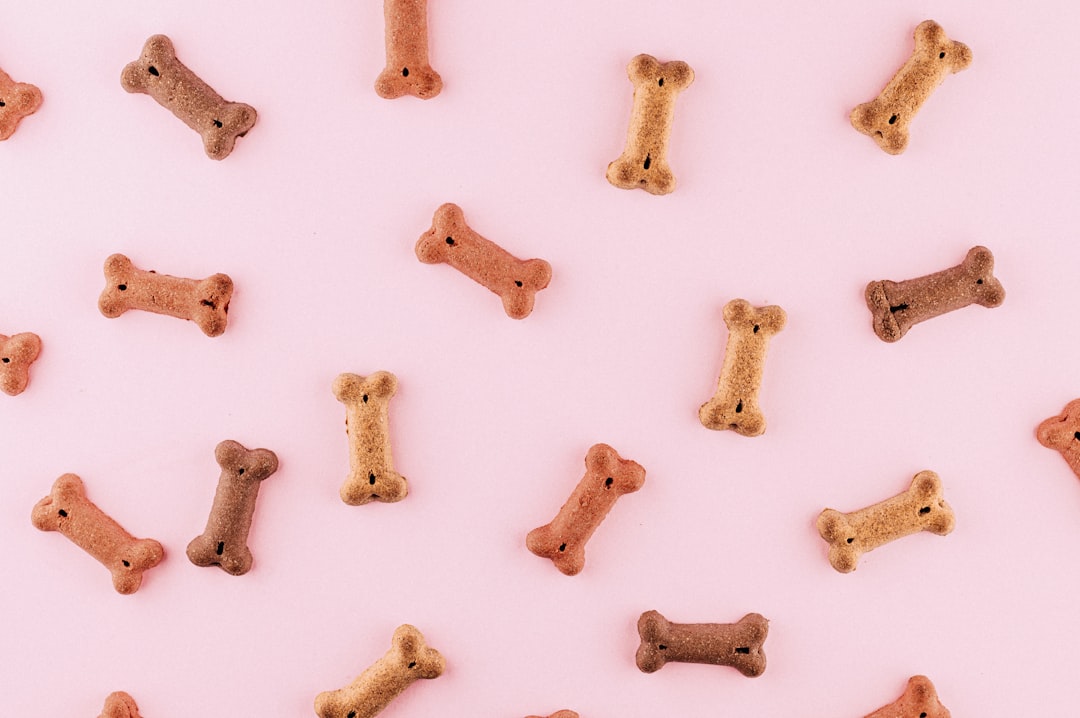Optimizing Dog Longevity: The Role of Nutrition in Extending Your Canine Companions Lifespan
This article explores the impact of nutrition on dog longevity, discussing the benefits of maintaining an optimal weight, the effects of caloric restriction, specific foods for extending dog lifespan, breed-specific dietary recommendations, and the importance of consulting a vet for personalized nutrition plans.
Introduction: Understanding the Relationship Between Nutrition and Dog Life Longevity
Nutrition is paramount in influencing the longevity of dogs, with the food they eat directly impacting their life expectancy. By providing dogs with a well-rounded and suitable diet, pet owners can contribute to enhancing their canine companions’ health and extending their lifespan. Research has delved into the intricate relationship between nutrition, weight control, and the overall welfare of dogs, shedding light on the significance of a carefully curated diet to support a dog’s longevity and quality of life.
Understanding the pivotal role of nutrition in the lifespan of dogs is exemplified in the story of Jennifer Gallagher and her senior dogs, Maci and Rusty. Gallagher’s choice to feed her dogs a diet rich in boiled green beans, bison, and sweet potatoes has been credited with their exceptional longevity, aged 17 and 16 respectively. This real-life example showcases how a thoughtfully planned diet can positively impact a dog’s life expectancy and underscores the importance of making informed nutritional choices for our furry companions.
The Impact of Nutrition on Dog Longevity
The significance of nutrition in the longevity of dogs cannot be overstated. Beyond just providing sustenance, a well-balanced diet plays a pivotal role in extending a dog’s lifespan. For instance, research has demonstrated that keeping dogs lean can lead to a considerable extension in their lifespan, with studies indicating that lean dogs could live anywhere from 6 months to 2 years and 6 months longer than their overweight counterparts. This highlights the direct correlation between weight management and life expectancy in dogs, emphasizing the importance of monitoring and maintaining an optimal weight in our canine companions.
Moreover, the impact of nutrition on dog longevity goes beyond just the quantity of food consumed. The quality of the diet also plays a crucial role in determining a dog’s overall health and lifespan. By feeding dogs a diet rich in essential nutrients, vitamins, and minerals, pet owners can actively contribute to their furry friends’ well-being and longevity. This holistic approach to nutrition not only supports a dog’s physical health but also aids in preventing the early onset of chronic conditions, such as arthritis, by ensuring that their bodies receive the necessary nourishment to thrive. Therefore, understanding the intricate relationship between nutrition, weight management, and overall well-being is vital for promoting a long and healthy life for our canine companions.
Scientific Studies on Diet and Dog Life Expectancy
Numerous scientific studies have delved into the relationship between diet and the life expectancy of dogs, shedding light on the critical role nutrition plays in canine longevity. For example, a comprehensive investigation revealed that implementing a 25% reduction in food consumption can not only extend the lifespan of dogs but also postpone the emergence of chronic diseases, underscoring the profound impact of dietary interventions on overall health. Moreover, a specific study focusing on Labrador Retrievers provided compelling evidence by showcasing that dogs subjected to a controlled diet exhibited a remarkable 15% increase in longevity compared to their counterparts following a regular diet regimen, emphasizing the direct correlation between dietary choices and extended lifespan.
Furthermore, longitudinal studies have consistently reinforced the notion that caloric restriction can yield a myriad of health benefits for dogs, ranging from improved immune system function to delayed onset of age-related conditions. These findings underscore the significance of not only the quantity but also the quality of food consumed by dogs in influencing their long-term health outcomes. By delving deeper into the scientific evidence surrounding diet and dog life expectancy, pet owners can glean invaluable insights into optimizing their furry companions’ dietary habits to promote a healthier and longer life.
Long-Term Effects of Obesity on Dog Health
Obesity in dogs not only affects their physical appearance but can also have severe implications for their health and longevity. When dogs are overweight, they are more prone to developing chronic conditions such as diabetes, heart disease, and joint problems, which can significantly impact their quality of life and lifespan. For instance, studies have indicated that obese dogs have a higher risk of developing osteoarthritis due to the added strain on their joints from excess weight, leading to mobility issues and discomfort.
Moreover, obesity in dogs can also affect their immune system, making them more susceptible to infections and other illnesses. Excess body fat can disrupt the immune response, making it harder for dogs to fight off diseases and infections, ultimately compromising their overall health. Therefore, maintaining a healthy weight through proper nutrition and portion control is crucial to prevent these long-term health effects and help dogs lead a fulfilling and extended life. By monitoring their weight and providing a balanced diet, pet owners can significantly improve their furry companions’ well-being and longevity, ensuring they live a happy and healthy life by their side.
Specific Foods for Extending Dog Longevity
When it comes to extending a dog’s lifespan, specific foods play a crucial role in promoting longevity. For instance, a pet owner shared that her senior dogs, Maci and Rusty, aged 17 and 16, have thrived on a diet consisting of boiled green beans, bison, and sweet potatoes, which are believed to contribute to their long and healthy lives. These natural ingredients not only provide essential nutrients but also support the dogs’ overall well-being, reflecting the significance of a well-thought-out diet in enhancing longevity. Furthermore, other safe food options such as unsalted green beans, plain cooked sweet potatoes, carrots, apples, melons, and berries can complement a dog’s diet, further supporting their health and potentially extending their lifespan.
In addition to incorporating specific foods, maintaining a nutritionally balanced diet is paramount for a dog’s longevity. The combination of whole, fresh ingredients like broccoli and other antioxidant-rich foods can strengthen a dog’s immune system, combat cell damage, and potentially protect against diseases, ultimately contributing to a longer and healthier life. It’s crucial for pet owners to monitor their dog’s response to food, coat health, muscle development, and energy levels to assess the adequacy of their diet and make necessary adjustments to promote longevity. By focusing on proper nutrition, exercise, and supplements, pet owners can significantly impact their dog’s quality of life and potentially increase their lifespan, emphasizing the pivotal role of diet in enhancing a dog’s overall well-being and longevity.
 Breed-Specific Dietary Recommendations
Breed-Specific Dietary Recommendations
When it comes to breed-specific dietary recommendations, Labrador Retrievers stand out as a prime example. These dogs benefit significantly from a diet that aids in maintaining an ideal body condition, ultimately leading to enhanced health and longevity. For Labrador Retrievers, a balanced diet that supports their unique needs can help prevent common health issues associated with the breed, such as joint problems or obesity. By focusing on the specific nutritional requirements of this breed, pet owners can ensure that their Labrador Retriever thrives and enjoys a longer, healthier life.
Moreover, closely monitoring a dog’s response to various foods is essential in understanding their individual dietary needs. Regular assessments of coat health, muscle development, and energy levels can provide valuable insights into the effectiveness of their current diet. By staying attuned to these indicators, pet owners can make informed decisions about their dog’s nutrition, making adjustments as needed to promote overall well-being. This personalized approach to nutrition can be further refined by seeking guidance from a veterinary nutritionist who can offer expert advice on formulating breed-specific dietary plans that address any unique health concerns or requirements. This tailored approach not only helps in preventing potential health risks but also ensures that each dog receives the nutrients necessary to support a long and healthy life.
Consulting a Vet for Personalized Nutrition Plans
When it comes to ensuring the longevity and well-being of our canine companions, consulting a veterinarian for personalized nutrition plans is paramount. Vets play a crucial role in tailoring diets to meet the specific needs of individual dogs, taking into account factors like breed, age, activity level, and any existing health conditions. By working closely with a vet, pet owners can address any dietary deficiencies, excesses, or allergies that may impact their dog’s health in the long run. For example, a vet may recommend specific supplements to support joint health in senior dogs or adjust the calorie intake for weight management in overweight pets.
Moreover, the Purina Life Plan not only highlights the significance of maintaining an ideal body condition but also provides valuable insights into obesity prevention strategies. By following expert advice and guidelines, dog owners can help their pets achieve and sustain a healthy weight, which is crucial for enhancing longevity. Additionally, seeking professional guidance from veterinary nutritionists can further optimize a dog’s diet to ensure they receive all the necessary nutrients for a balanced and wholesome meal plan. These personalized nutrition plans are designed to address the unique nutritional requirements of different breeds, ultimately contributing to the overall health and lifespan of our beloved furry friends.



